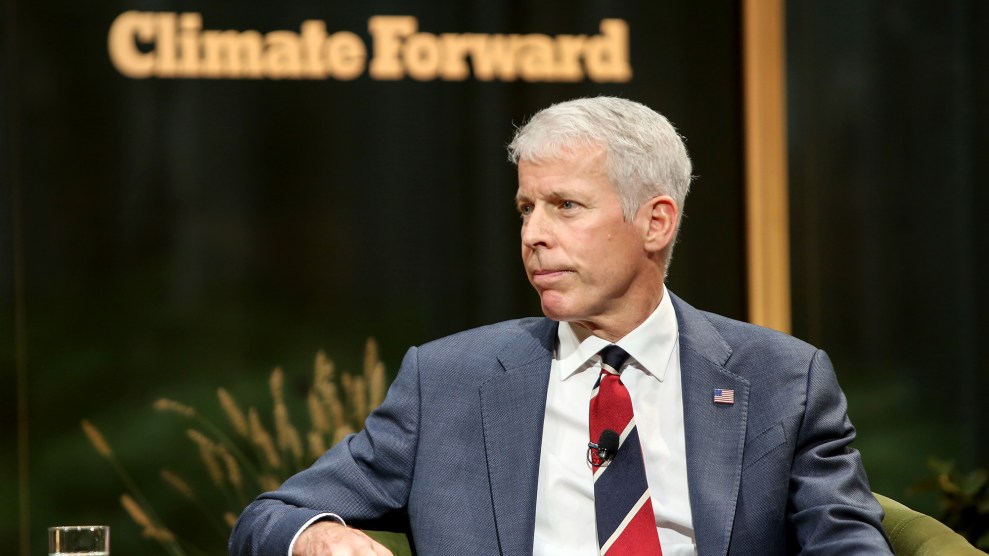
Jp Valery/Unsplash
They’ve had little success. A recent divestment bill that would have directed managers of California’s public pension and teachers’ retirement funds to stop investing in the 200 largest oil, gas and coal companies failed in the Legislature for the second year in a row. State pension funds have an estimated $14.8 billion invested in fossil fuel companies that are driving the climate crisis.
SB 252 would require the California Public Employees’ Retirement System and the State Teachers’ Retirement System to sell their remaining fossil fuel investments by the 2030s.
Supporters of divestment say their goal is to “delegitimize fossil fuel companies as political players.”
For the second time in two years, the bill was blocked by a single legislator heading the Assembly’s Committee on Public Employment and Retirement. It will be up for reconsideration next year.
In a statement to Capital & Main, Assemblymember Tina McKinnor (D-Inglewood), the committee chair who blocked the bill, said she wanted to learn more about how divestment could affect pensioners in the state. In her campaign for office last year, labor unions were her largest supporters, contributing at least $358,900. She also benefited from more than $100,000 put up by a political action committee funded by oil and gas companies.
“Before making a decision on this policy, I have asked CalPERS and CalSTRS members, beneficiaries and their labor representatives to share their opinion on this legislation. These funds pay for their retirement and I welcome their voices before considering SB 252 in 2024,” McKinnor said.
The bill was carried, once again, by Sen. Lena Gonzalez (D-Long Beach). Her press secretary, Leoda Valenzuela, said that McKinnor agreed to hold an “informational hearing” in early 2024.
Board members and staff from CalPERS met with lawmakers to lobby against it. A CalSTRS spokesperson said the fund’s staff expressed their opposition to McKinnor and other legislators.
California’s pensions are holding onto fossil fuel investments just as the severe effects of the climate crisis bear down on the world. The previous months were Earth’s hottest in perhaps 125,000 years, a direct result of interactions between global warming and the cyclical warm-weather pattern called El Niño. Other effects linked to rising heat, like disastrous wildfires, downpours and drought, are occurring at an overwhelming pace across the U.S. and the world.
The window to meet the target for international climate emissions cuts is shrinking, raising the likelihood of a worsening crisis now and in the future. Scientists say that to limit damage, fossil fuels must be phased out as fast as possible while the world transitions to renewable forms of energy such as solar, wind, geothermal and other less-polluting sources.
Divesting California’s pensions would be a small hit to an industry worth trillions, but the actions could reverberate around the globe and inspire similar actions elsewhere. Other institutions, worth $40.51 trillion in total, have divested or pledged to divest from oil, gas and coal.
They include Harvard University and pension funds outside the U.S. A majority of those that have divested or pledged to divest are faith-based organizations, philanthropic groups and universities. More than two dozen American cities, mostly in California, have sold their fossil fuel assets and committed to not buying any more. The Glasgow Financial Alliance for Net Zero, a coalition of asset owners and banks that supports decarbonization, has said that divestment should accompany policies to fight climate change.
California’s state pension funds warn that divestment could result in some short-term hits to workers’ retirement funds. They’ve argued the losses for CalPERS pensions could amount to more than $300 million a year. The funds have already divested from other securities related to tobacco, private prisons, some forms of coal and regimes in Iran and Sudan, resulting in a $9.55 billion loss for pensions for CalSTRs alone.
In response, supporters cite an analysis that found the funds lost almost $10 billion due to poorly performing fossil fuel holdings over the last decade. Losses may accelerate if companies start abandoning assets, like refineries and millions of wells. In addition, both pension funds rely on investment models that are likely underestimating the costs of climate damage on pensioners’ portfolios, according to a report from Carbon Tracker.
The pension funds have said that instead of divesting, they can use their leverage as investors to nudge companies toward renewable energy. CalPERS also recently committed to increasing its investments in renewable energy compared to fossil fuels. Another concern expressed by opponents of the tactic is that it’s possible and even plausible that divesting would hand off the assets to others who have less stringent policies on emissions.
So far, oil majors haven’t promised to end fossil fuel production, a key requirement if they want to help the world halt global warming. And sometimes they’ve resisted pressure from investors. For example, after CalSTRS joined other investors to elect climate-conscious board directors at ExxonMobil, the company fought against efforts to create change.
Dan Cohn, global energy transition researcher at the Institute for Energy Economics and Financial Analysis, said there’s little evidence to back up the idea that investors can steer fossil fuel companies onto the right path.
“The pensions say if they don’t invest in these assets, unscrupulous people will have a seat at the table and that will be bad,” Cohn said. “What is the evidence that having a seat at the table has any perceptible impact on a company’s trajectory as a main source of fossil fuels in the world?”
Other states where pensions divested have faced political backlash.
A lawsuit, filed in May by a group that opposes public sector unions, alleges that three New York City pension funds are engaged in a “misguided and ineffectual gesture to address climate change” after they sold polluting assets worth about $3 billion.
And Maine’s law requiring its pensions funds to divest allows them to hold fossil fuels if doing otherwise would result in losses. Even so, in became a political lightning rod. A Republican candidate for governor bashed the policy repeatedly while campaigning last year.
Besides McKinnor’s refusal to hear the bill, there are signs that California’s political leadership fears a similar backlash.
Before it passed the State Senate, six Democratic senators had “no vote recorded” on the bill. This is a tactic some lawmakers use to avoid upsetting powerful interests without sullying their record on the environment and climate.
But with the reality of climate change now clear, divestment could grow as a tactic. Even the United Nations’ leading architect of the Paris Agreement, the 2015 global plan to cut emissions, recently admitted that fossil fuel companies cannot be trusted to help the world fight the crisis — a major about-face.
Young people staring down a hotter, water-scarce future where catastrophes are the norm have long been a driving force behind divestment.
Anaya Sayal, a 16-year-old member of Youth vs. Apocalypse, said in a statement the bill “brings us one step closer to living in a world where we don’t have to live in a constant state of apprehension regarding health conditions, and issues we face because of climate chaos; that future generations will also face as a result of the climate catastrophe.”












